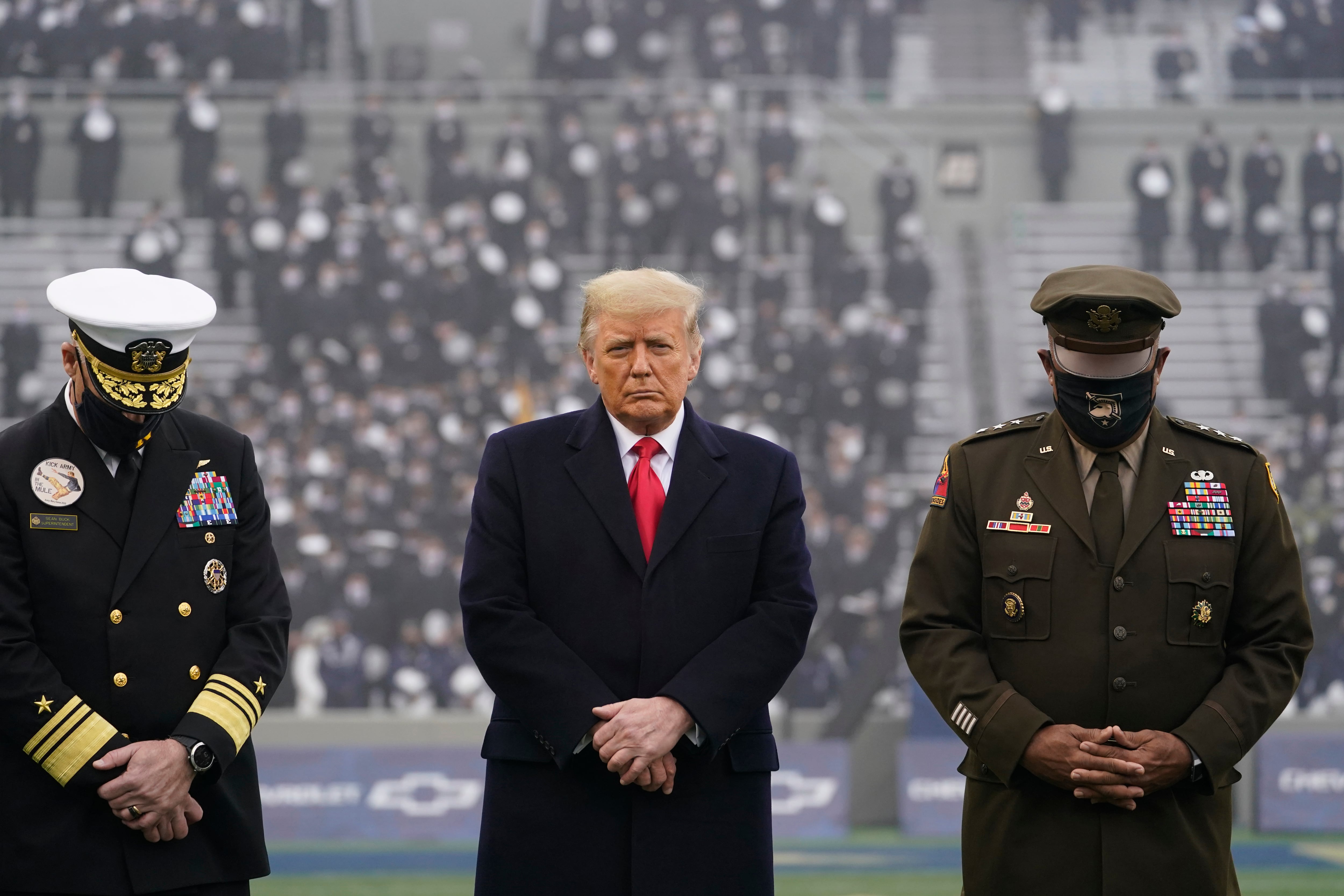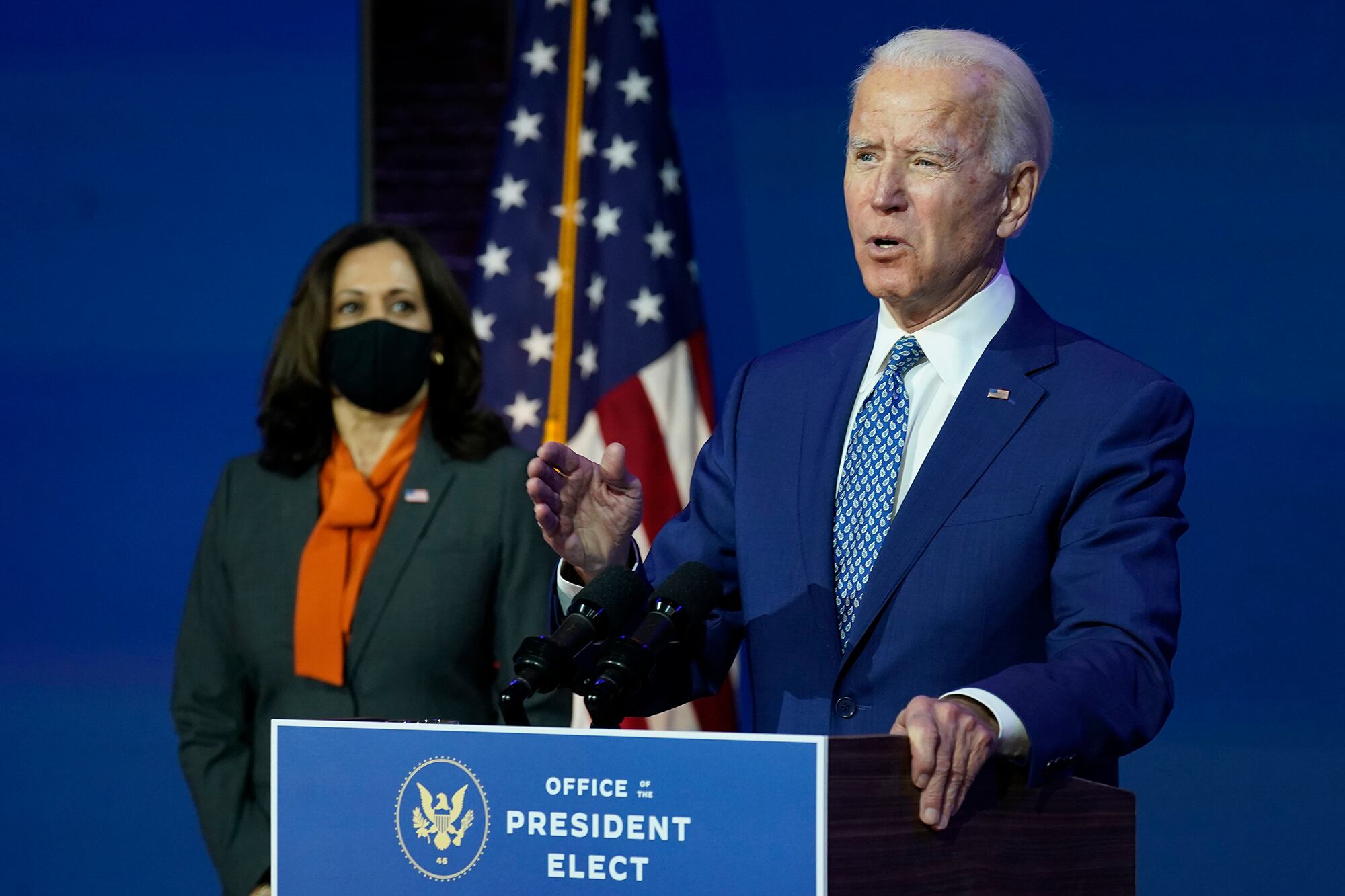The annual defense authorization bill hit yet another procedural roadblock on Tuesday, this time over an unrelated fight over stimulus checks related to the ongoing pandemic.
The latest twist in the fate of the $740.5 billion military budget policy measure — which would authorize new equipment purchases, extend a host of specialty pays for troops, and offer dozens of new reforms designed to benefit Pentagon planners and military families — is a procedural fight between Sen. Bernie Sanders and Republican leaders over unrelated, non-military issues.
Sanders, I-Vt., and several other Democrats want an immediate vote on legislation to increase pandemic stimulus checks from $600 to $2,000. The House passed the measure Monday, but Senate Majority Leader Mitch McConnell wants to add other provisions to the proposal.
RELATED

McConnell linked that plan to fast passage of the defense bill, but Sanders wants a straight chamber vote on the $2,000 proposal.
“This week on the Senate floor Mitch McConnell wants to vote to override Trump’s veto of the $740 billion defense funding bill and then head home for the New Year,” he said in a statement Monday evening. “I’m going to object until we get a vote on legislation to provide a $2,000 direct payment to the working class.
“Let me be clear: If Senator McConnell doesn’t agree to an up or down vote to provide the working people of our country a $2,000 direct payment, Congress will not be going home for New Year’s Eve. Let’s do our job.”
The move upsets timing yet again for a final vote on the authorization bill, which has passed Congress for 59 consecutive years and has been pushed as must-pass legislation by Pentagon leaders and defense lawmakers.
Earlier this month, the 4,500-plus-page defense authorization measure, which took nearly a year to craft, was approved by both the House and Senate with wide, bipartisan margins.
But Senate lawmakers’ approval was delayed by several days when Sen. Rand Paul, R-Ky., objected to provisions that require congressional notification before troops can be withdrawn from Afghanistan.
And after passage, the measure was vetoed by President Donald Trump, who chastised lawmakers for not including his last-minute provision to remove legal protections for social media companies (often referred to as “Section 230”) and for including language that would require the renaming of military bases which honor Confederate leaders.
On Tuesday, Trump again took to social media to complain about those issues, calling the bill “a disgraceful act of cowardice and total submission by weak people to Big Tech” and adding that the Senate “should not approve NDAA.”
But on Monday, House lawmakers strongly rejected that veto, voting 322-87 with significant support from Republicans.
The Senate is expected to also override the presidential move, when they eventually get to a vote.
That could slip into the new year. McConnell was expected to make procedural moves Wednesday to set up a final override vote sometime this weekend, before the new session of Congress begins on Jan. 3.
But the latest delay is raising concerns about the possibility of the measure’s defeat.
On Monday, Senate Armed Services Committee ranking member Sen. Jack Reed, D-R.I., said in a statement that the House veto override vote was “a stinging rebuke of President Trump’s irresponsible attempt to use our servicemen and women as political pawns” and that the Senate needs to follow suit as soon as possible.
RELATED

On Tuesday, after Sanders’ block, Senate Armed Services Committee Chairman Jim Inhofe said that failure to finalize the authorization bill means “more than 200,000 military families will receive smaller paychecks in January, because special pays and bonuses for hazard pay are all a part of this bill.”
Both House and Senate leaders have said in the event the annual authorization bill doesn’t become law, they do not have a backup plan. New program starts would be delayed for months (or cancelled altogether) and numerous purchasing plans disrupted while lawmakers work to fix the damage.
Leo covers Congress, Veterans Affairs and the White House for Military Times. He has covered Washington, D.C. since 2004, focusing on military personnel and veterans policies. His work has earned numerous honors, including a 2009 Polk award, a 2010 National Headliner Award, the IAVA Leadership in Journalism award and the VFW News Media award.
Joe Gould was the senior Pentagon reporter for Defense News, covering the intersection of national security policy, politics and the defense industry. He had previously served as Congress reporter.







